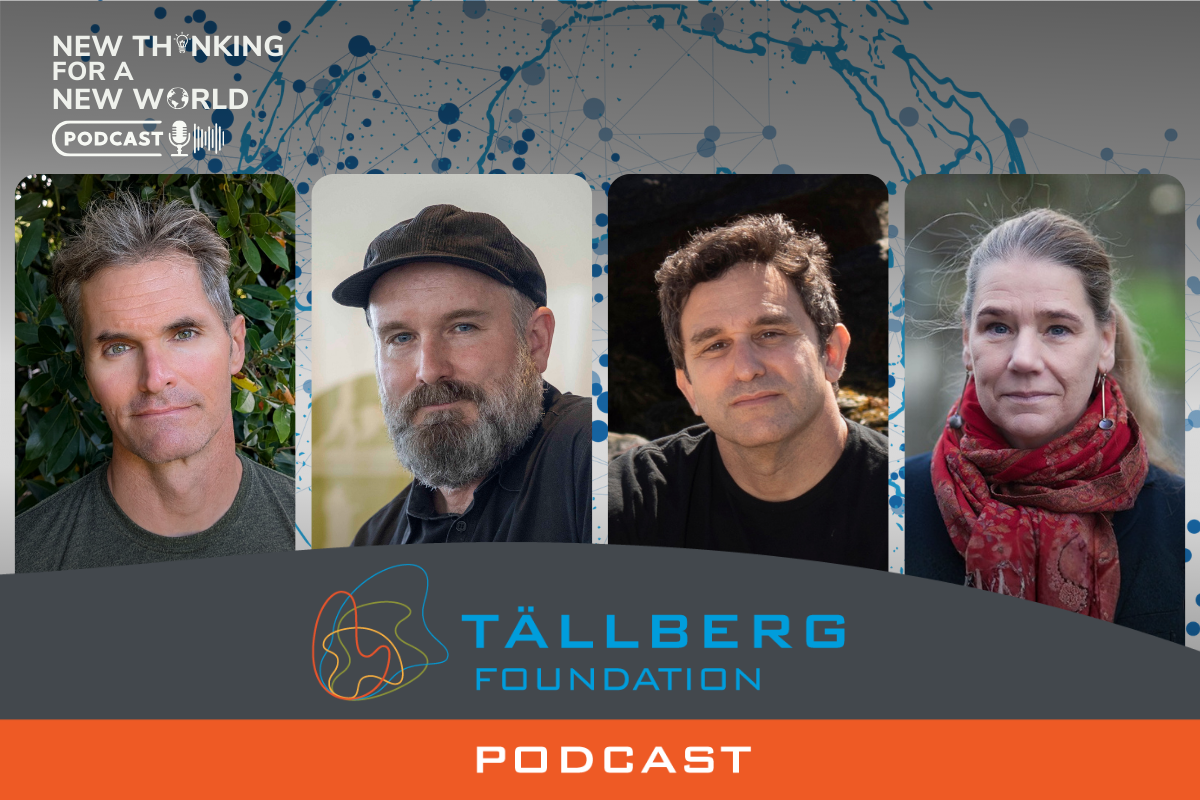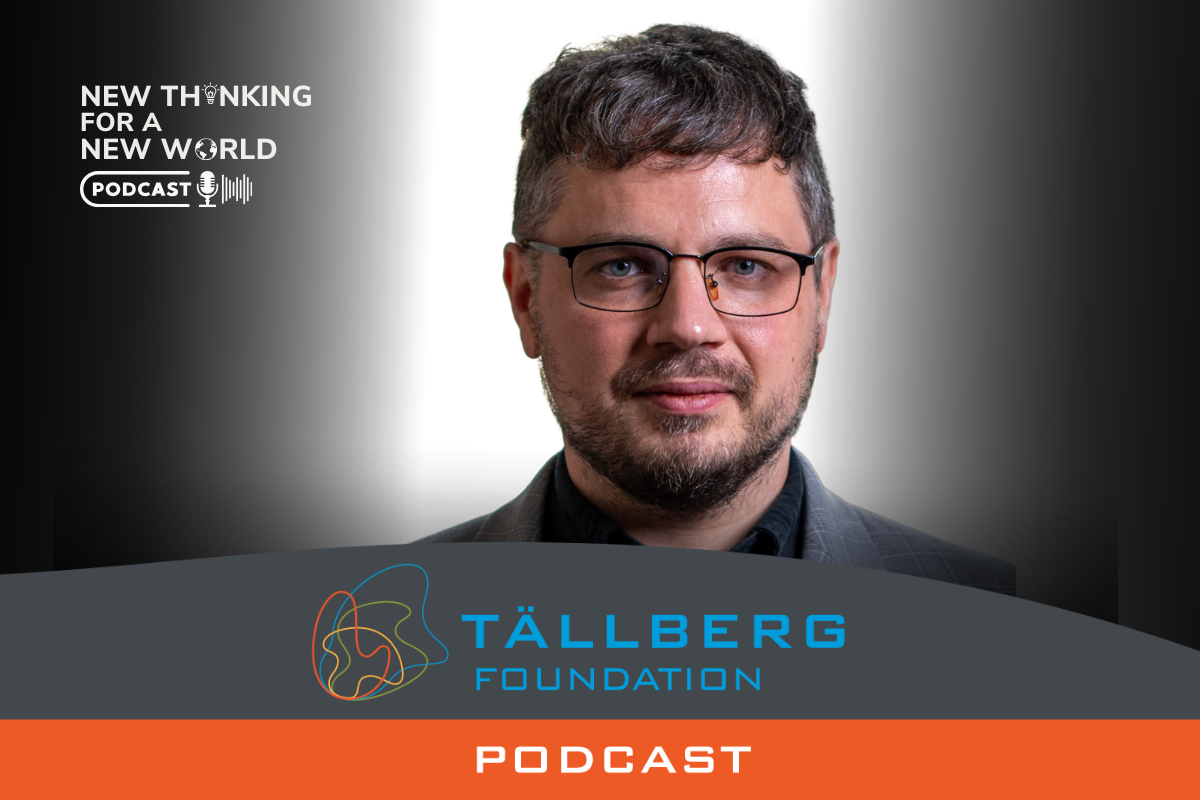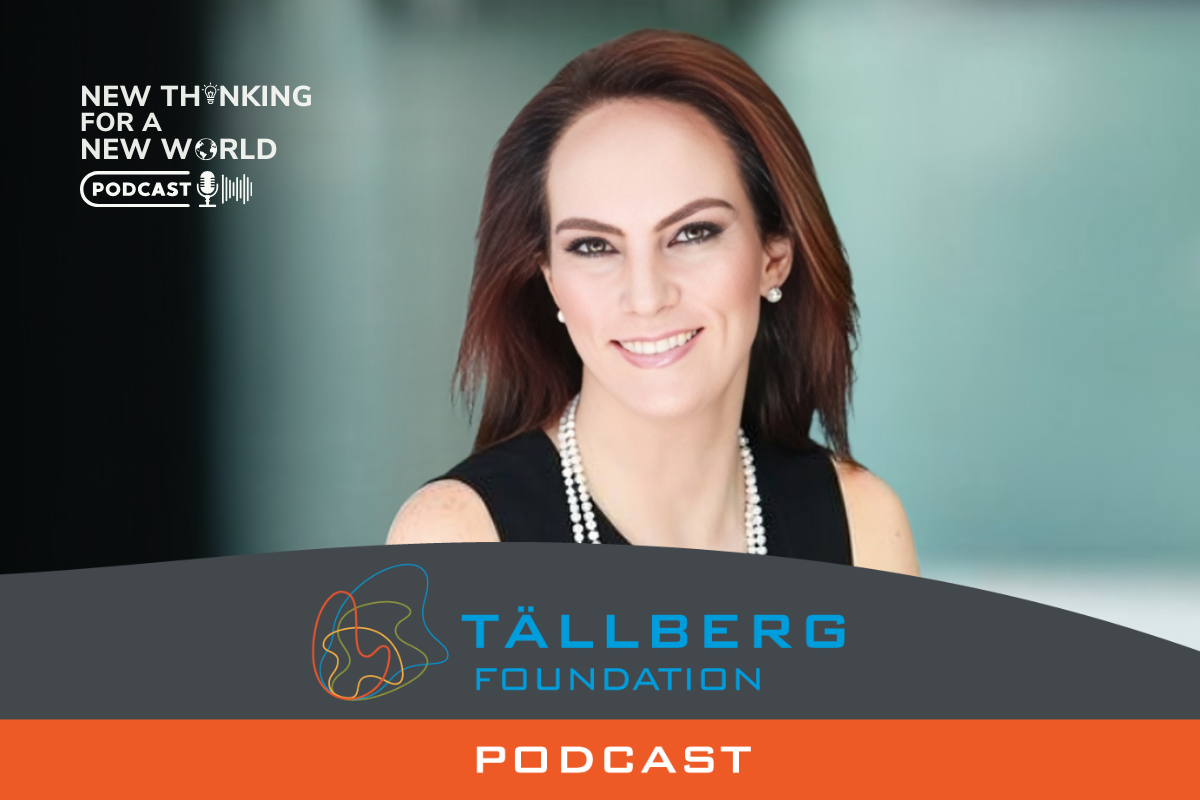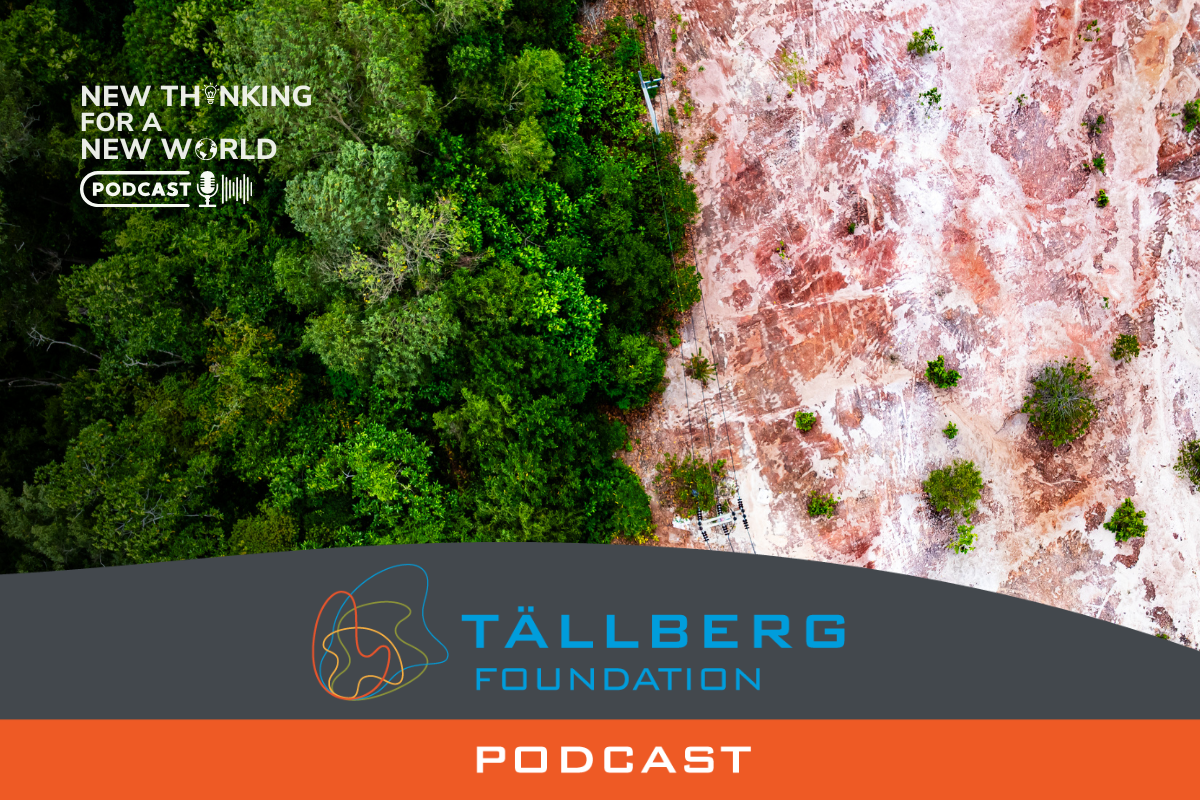This war is far from over and its reverberations will be with us for a long time. Most importantly, the war seems to be the straw that is breaking the camel’s back of the post-Cold War world order, with unpredictable consequences. The Tällberg Foundation recently hosted a discussion that touched on many of these issues.
ABOUT OUR GUESTS
Tomas Anker Christensen is the Climate Ambassador of Denmark. Ambassador Christensen served as Denmark’s Ambassador to Egypt from 2018-2020. Previously he worked in various capacities at the United Nations in New York including as Senior Advisor to the Secretary General on Partnerships, Chief of Staff to the President of the General Assembly and diplomatic advisor to the Special Envoys for Climate Action and the Ocean. Prior to this he served as Under-Secretary for Global Challenges in the Danish MFA, Ambassador to Iran and Director for the MENA Department. Earlier he served in New York, Egypt, India and Algiers.
Pierre Lellouche, after a long career in the French Parliament (five consecutive terms, 1993-2017) and several appointments in the executive branch, is currently Associate Partner of the Agora Strategy Group, a consulting company with offices in Munich, Berlin, Brussels and Paris, and President of the NGO ‘Les Chantiers de la Liberté”. Pierre Lellouche was educated at the University of Paris-Nanterre, Sciences Po and Harvard Law School (LLM, 1974, SJD 1978, Doctoral thesis on the internationalization of the nuclear fuel cycle). A specialist of foreign affairs, he was a co-founder of the French institute for international relations (IFRI) and became diplomatic adviser to Jacques Chirac (1989-1997). He was elected President of the NATO Parliamentary Assembly (between 2004 and 2006) and French Special Envoy to ITER negotiations (thermo-nuclear fusion experimental reactor, 2003-2005). Later on, he was French Special Representative for Afghanistan-Pakistan (2008-2009), Minister for Europe (2009-2010) and Foreign Trade Minister (2011-2012). He is the author of numerous books and articles in national and international politics. His latest publications : Une guerre sans fin, éditions du Cerf, Paris and a parliamentary report on the extraterritoriality of American laws and compliance, 2016.
Alan Stoga is a strategist and entrepreneur with extensive experience in communications and public relations, corporate consulting, digital media, geopolitics, banking and government. Currently, he serves as executive chairman of the Tällberg Foundation, as well as president of Zemi Communications, L.L.C., a New York based firm that provides geopolitical and business intelligence information and counsel to global corporations..
Previously, Mr. Stoga was senior adviser to and managing director of Kissinger Associates; founded a strategic communications company and a private equity firm; was a member of the board of Alliance Capital’s international mutual fund complex; served as chief economist for the Bipartisan National Commission on Central America, created by President Reagan; established and managed the country risk management activities for the First National Bank of Chicago; and served as an international economist in the U.S. Treasury.
Mr. Stoga is Chairman of the board of the Tinker Foundation, which works in Latin America. He has economics and international relations degrees from Michigan State and Yale University, respectively.
Nikos Xydakis, Born 1958. Journalist,art critic. Head of the culture section and editor in chief in “Kathimerini” daily newspaper (1992-2014). MP candidate for the Coalition of the Left ticket (2000) and MEP candidate for Syriza Party (2014). On 25 January 2015 he was elected MP in the national elections and served in the first cabinet of Alexis Tsipras as Minister of Culture. On 20 September 2015 he was re-elected MP and served as Alternate Minister of Foreign Affairs till November, 5th, 2016.
Russia’s war on Ukraine changes everything. Thousands have died; Ukrainian cities have been destroyed; the country’s factories and farms are largely rubble. Ukraine’s heroic resistance has denied the Russian’s their expected quick victory—resistance fueled by unprecedented Western sanctions on Russia and almost unlimited military resupply from NATO countries.
But the damage is not limited to Ukraine and to Russia. The knock-on effects include increased inflation and reduced growth—or even recession—around the world, food shortages and famines, and disrupted supply chains. Most importantly, the war seems to be the straw that is breaking the camel’s back of the post-Cold War world order, with unpredictable consequences.
And all of it would be immeasurably worse if President Putin acts on his nuclear threats.
The Tällberg Foundation recently hosted a discussion that touched on many of these issues. The speakers were Alan Stoga, Tällberg’s chairman; Nikos Xydakis, Greek journalist and former minister; Tomas Anker Christensen, Danish diplomat, who spoke in his personal capacity; Pierre Lellouche, former French minister and politician. Our conversation was hosted in Vamvakou, Greece by Vamvakou Revival and the Stavros Niarchos Foundation (SNF).
This war is far from over and its reverberations will be with us for a long time. What do you think?




Hi, I think the Ukrainian war is terrible and the suffering of people in Ukraine in particular but also of people all over the world is almost unbearable. However, I believe it is part of a bigger story. We see the clash of two worlds, the world of the past with important concepts such as individualism, centralism, dominance, control, and a new world which is driven by networking, crowd intelligence, fluidity, and emotionality.
Putin as an individual is trying to force the world believing he can control an ever-growing complexity in a world where the speed of change is increasing. Trump is equally trying to pursue his individual goals believing in his ability to control the system. They are representatives of the old world which at the moment desperately fighting for survival.
The war in Ukraine is a catastrophe and has an immense impact on the world. However, my believe is that when an old world and a new world are fighting each other fiercely and are struggling for leadership war and conflicts are bound to erupt. If the Ukraine war would not have happened another war would have started somewhere else. We already had some wars before which have paved the ground like the Syrian war or the Afghan war. The fight is not between the west and the east, the south and the north or Putin against the Nato, it is between the ones who still believe in the power of individualism and the ones who believe in the power of connected brains.
The divide we see between Putin and the West is present in almost all countries in the world, it is the growing polarization between the ones fighting for the right to be individually rich and egocentrically concerned and the ones who believe in the power of the mass. But it is not the old dream of communism. It is about accepting the limitation an individual brain has in facing an ever-growing complexity and the necessity to build networks of brains to create the ability to strive in this new world. Til the struggle is one by the new world further hardship, conflict and suffering will happen. However, the new world will eventually come through as it is an example of the theory of evolution. The environment has changed through globalization, digitalization and connectivity so the old model of the power of individuals to initiate progress need to be pushed aside by a new system of crowd orientation.
That why iam positive despite all the current suffering.
I shall be so brief in my observation..
I believe that very soon, the sanctions imposed on Russia by the West would bite, and if countries comply and don’t trade with Russia, it would force Russia to stop the war and withdraw from Ukraine..
Secondly, Russia would most likely face the same scenario in Afghanistan and Syria, as resistance is being aided secretly and openly..
Thirdly, Russia cannot afford to trigger a Nuclear action, as NATO is so close to her territory, and not only that, would Russia destroy Ukraine with some Nuclear weapons? No!
Fourthly, a Rebellion in Russia is very likely, and that could help end this war on Ukraine..
Also, in my inner thinking, it looks like some other countries where using Ukraine as a bait, to lure Western countries into the war so, there could be ripples — but that is not happening!
For sure, I’m in Lagos, Nigeria, and the cost of bread has trippled , as Nigeria imports wheat and flour from Russia…
I am a presidential aspirant, on the platform of the “African Democratic Congress–ADC party,” since 2018 and I am duly registered and published, but I’m finding it so difficult to declare to contest the 2023 presidential election in Nigeria, as I don’t have money to pay for media coverage and publicity, and so, my part manifesto (which is a $2Trillion US Dollar Budget) — which would involve donations from other countries and International financial institutions, is the best Nigerians might not get to know and see, as no media is ready to help me do my declaration — free!
The world is slowly liming back to normalcy after the infectious invasion called Corona (or has it really limped back? ), but now we face this problem of war. Any war breaks the rhythm of life. It affects not just individuals but it destroys many links of the chains that connects the entire world. I want to mention two of the ill effects of this Russia Ukraine war.
The influx of refugees: The people of the world in general and European people in particular are very much concerned for those who suffer and want to help them at all costs. But when people flee from a war torn area they cant even afford to take the essentials and there by become more of a burden for those countries that open the gate for the refugees.
Ukraine is a country that was offering a variety of higher education programs particularly in medicine at a nominal cost to the students. Many students from different countries were studying there and when the war broke out they had to leave Ukraine. Now the pursuit of their education is in a jeopardize
The first line has an error instead of limping it was typed as liming. sorry for it .